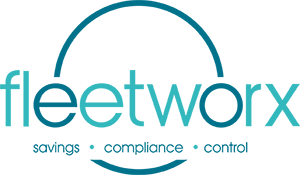05 Dec Excess mileage charges grow to concerning levels during 2024
When you sign your brand-new leasing agreement with your eager leasing supplier, it’s easy to overlook excess mileage charges—but doing so could be a costly mistake!
Integral to the leasing supplier’s revenue model are sophisticated means of applying margin to consumables and services. In fact these margins drive most of the revenue for the lessor, accounting for 70% of income. It is a common misconception that the only revenue elements to be negotiated with the supplier are the management fee and the margin on the financing interest. Most company car fleet operators assume that focusing on these means they are in control of the contract costs, and therefore, job done!
Unfortunately, this isn’t the case—as excess mileage charges clearly demonstrate.
According to FleetNews FN50 2024, the average excess mileage charge for cars has increased again by 11% year-on-year to £586, following 2023’s 29% year-on-year increase to £528. Whilst the number of returned vehicles who incur excess charges has risen from 12% to 17%. So, a company car fleet of 1000 cars is potentally exposed to a liability of over £99,000.
The FN50 still reports a huge disparity in the size of the average charges for cars reported by individual leasing companies, £151 to £1700 – reduced slightly from £143 to £1800, whilst the average proportion of the fleet subject to the charges in 2024 ranges from as low as 3% to as high as 67% (up from 36% in 2023). So, the worst-case scenario for a fleet of 1000 cars could be 67% of the fleet subjected to excess mileage at a cost of £1700 which equates to a staggering £1,206,000!.
Although hopefully this is unlikely, it demonstrates the potential for excessive charges if close attention is not paid to the contact deviation clauses at the outset.
It is particularly important for 3-year contracts that were started in 2020/21 when lockdown changed travel habits and mileage clauses were probably reflective of the time, not of the norm. So as zoom-fatigue grips the nation, and personal contact once again becomes the preferred choice of doing business, it is likely that excess mileage charges will increase even further.
So, what can be done?
A contract review and realignment are required as contract deviation clauses are nearly always stacked in favour of the lessor. Fleetworx apply extensive experience and expert knowledge to the supplier costing processes to ensure fleet clients are extracting best value from their fleet contracts. We would be looking at the following interventions:
- Is the rate per mile/km realistic?
- Is it set by vehicle or a flat rate to the client?
- Is under-mileage credited and is this at the same rate?
- Are credits and debits pooled, and if so, over what period?
- Are there any caveats around any pool, such as a cap on the maximum under-mileage on a vehicle?
Understanding the detail of the leasing supplier costing model is essential to managing contract cost creep. Fleetworx are experts at doing this and can support and manage fleet stakeholders who want to take control of their company car fleet costing structure.
NEW: FleetScan
NEW: FleetScan – a FREE FleetScan from Fleetworx will provide you with a comprehensive review of your company car fleet, advising on supplier alignment and cost-saving initiatives.
Apply for your FleetScan and take control of your company car fleet.
Back to Blogs Back to Case Studies List

Sorry, the comment form is closed at this time.